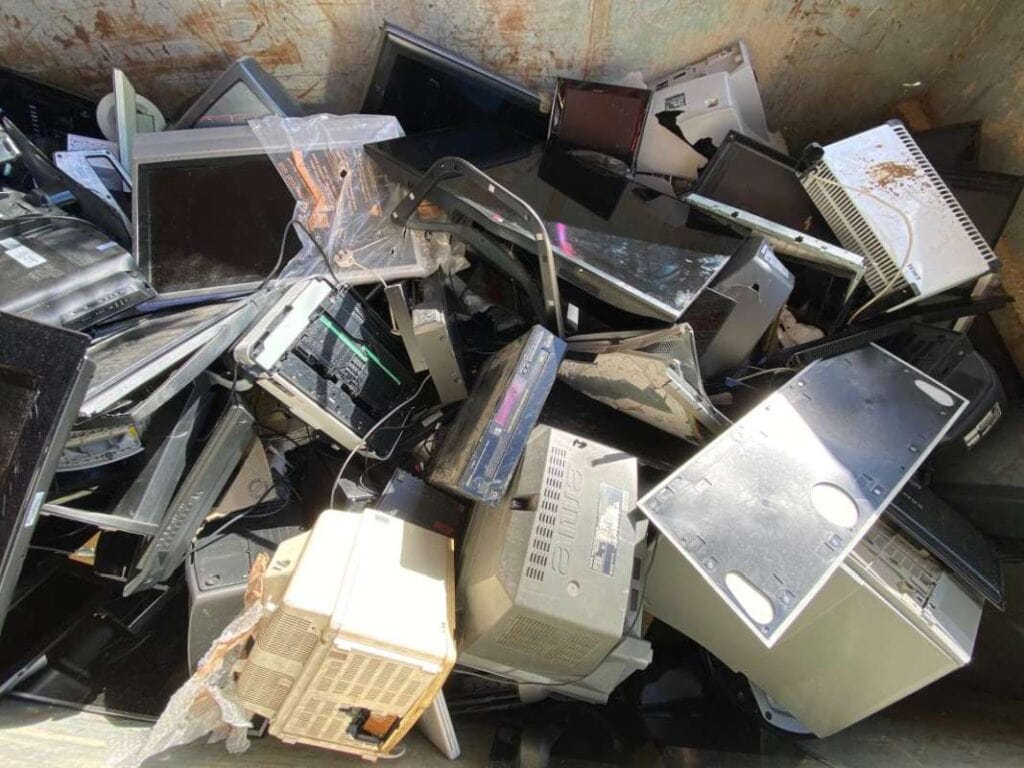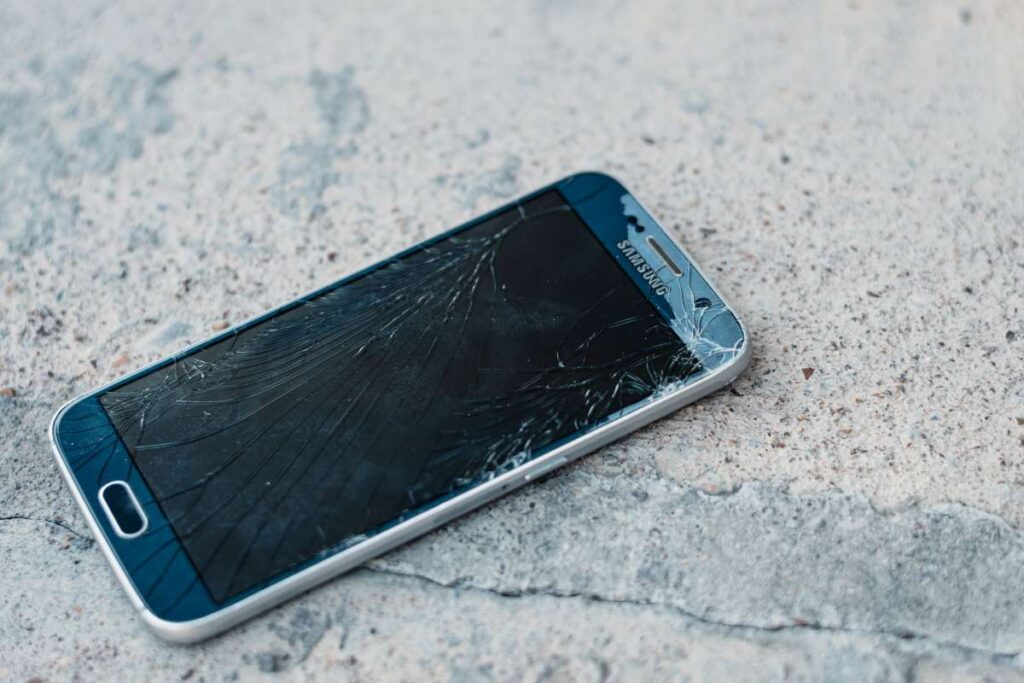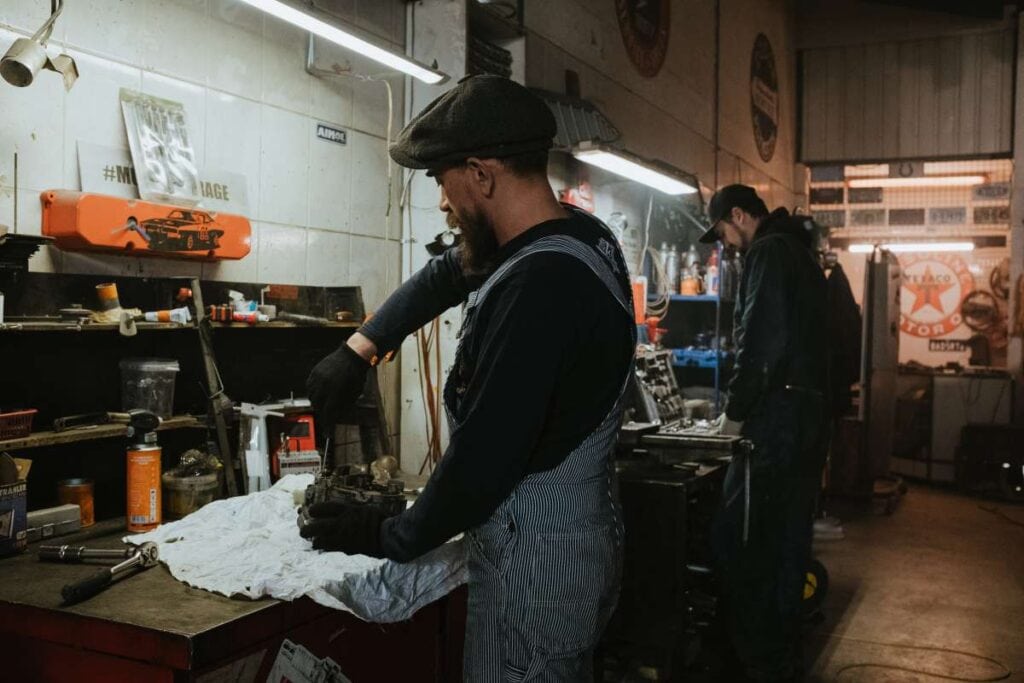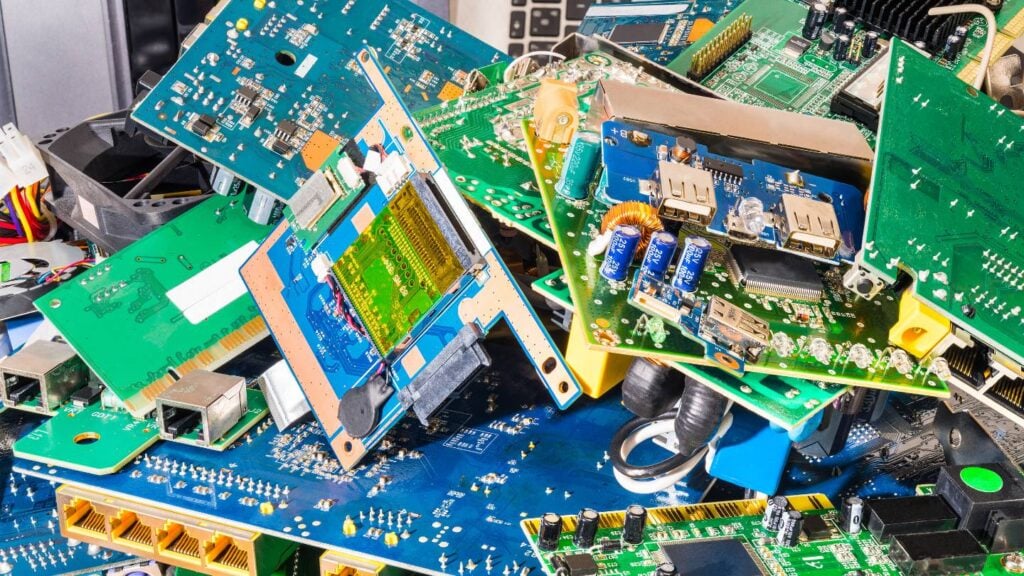Newer, more efficient models of appliances are regularly swapped out for older ones as technology progresses. But now the question is: where should we put the old appliances? They often contain hazardous materials, so throwing them out with regular trash can have negative effects on the environment.
In this blog, we'll go over proper procedures for getting rid of old appliances in a way that doesn't harm the environment.
Improper appliance disposal has a significant impact on the environment. When electronic waste is dismantled, shredded, or melted, it releases toxins like dioxins and dust particles into the air, contributing to air pollution and posing a threat to respiratory health. Burning e-waste is another way of disposing of it, but it releases fine particles that can travel for thousands of miles, putting people and animals at risk of health problems.
Workers who handle e-waste are most at risk of the air pollution caused by their work. Animals may also be affected, which can threaten the biodiversity of regions that are chronically polluted. The long-term negative effects of air pollution can also harm ecosystems, including water quality, soil, and plant species. In Guiyu, China, an informal recycling hub resulted in extremely high lead levels in the air that are inhaled and then ingested when they settle back into the water and soil.
Improperly disposed of e-waste can also contaminate soil and groundwater with heavy metals and flame retardants, which can reduce farm productivity and pose a risk to human health. Contaminants have been shown to accumulate in the soil over time, threatening plant life and soil microbes. Wildlife and other animals that rely on the environment for sustenance may develop health problems after eating contaminated plants.
Groundwater contaminated by heavy metals from electronic waste can also affect surface water bodies like lakes, rivers, and streams. Acidification can harm ecosystems, reduce biodiversity, and kill marine and freshwater organisms. It can also make water unfit for human, animal, and plant consumption, making finding safe water to drink difficult.
The components of electronic waste are toxic and dangerous to human health. Humans are vulnerable to damage to their nervous, cardiovascular, digestive, urinary, and skeletal systems from toxins like mercury, lead, cadmium, and lithium. Disease and birth defects are just two of the many health problems that can result from their negative effects on the human body.
Raising awareness of the growing problem of e-waste and its harmful consequences is crucial. Proper disposal of electronic waste is essential to protect future generations from its harmful effects. Recycling, refurbishing, reselling, and reusing electronics can significantly reduce the impact of e-waste on the environment. Proper training in recycling and waste management is also crucial to ensure that the influx of electronic waste is managed effectively.
How To Get Rid Of Old Appliances
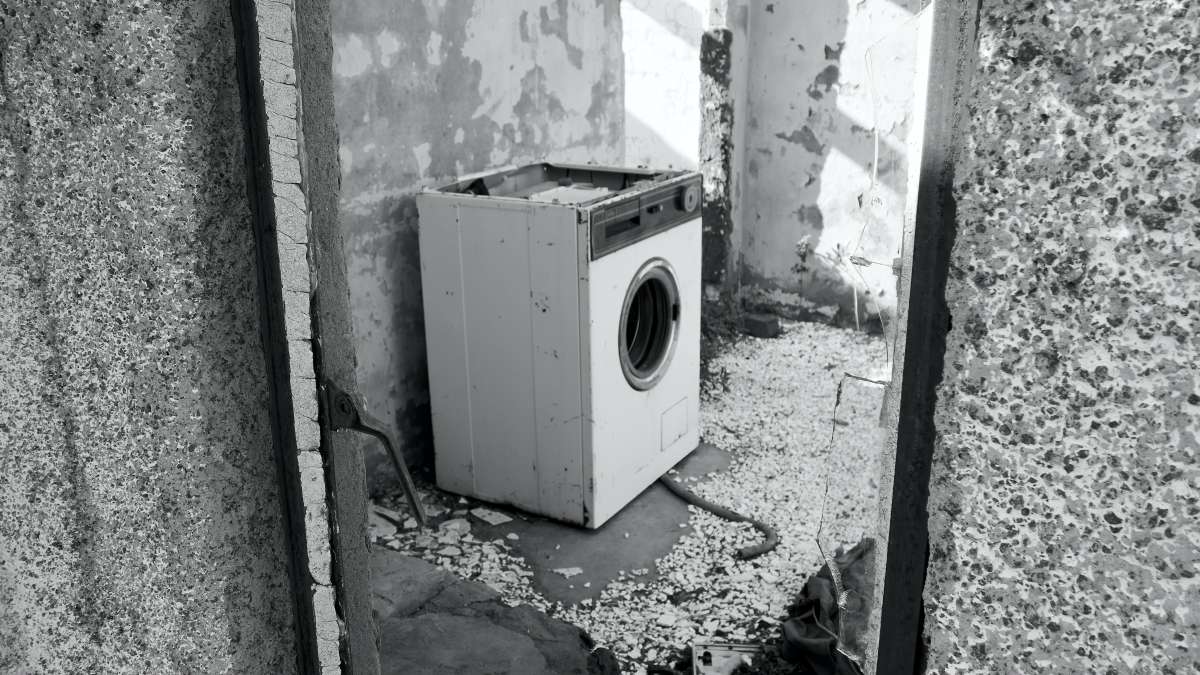
Whether or not the appliance is still functional will determine how it is disposed of. It's best to use your best judgement before taking any action, as it's often much simpler to get rid of unwanted appliances that are still in working order. Among the options for discarding outdated home electronics are:
- You should probably sell your old working appliance before buying a new one. The best course of action for recouping the cost of unwanted household appliances is to sell them.
- Donate your old appliances to a thrift store or a charity like the Salvation Army if you're not interested in selling them. This is a fantastic method to help others while extending the life of common household appliances. Some organisations will even arrange for the removal and pickup of high-demand items.
- If your appliance has stopped working, you should call the city hall. They will know the proper methods of disposal and may even offer pickup services for a limited number of large appliances annually. Kerbside appliance disposal can cost money and often goes to a landfill rather than being recycled, so keep that in mind.
- In areas without kerbside collection, trash and unwanted appliances can be brought to designated drop-off locations. A van or truck of sufficient size is required, but these can usually be rented for a reasonable rate. Look around for recycling centres as an alternative to landfills.
- Appliance removal services are another option. Although this may be more costly than some alternatives, it has many advantages, including convenient appliance pickup at your convenience and the assurance that your old appliances will be properly recycled or disposed of. If you hire a reputable waste management company that specialises in disposing of appliances, you can help cut down on landfill waste and extend the useful life of materials.
- Last but not least, when purchasing new appliances to replace old ones, find out if the store offers a removal service for the old ones. When replacing expensive appliances like refrigerators, washing machines, ovens, and dryers, many big-box retailers provide free removal and disposal services.
How To Dispose Appliances
Too many people throw away appliances like refrigerators, freezers, and stoves when they no longer need them. These appliances aren't biodegradable, so they'll rust and, in some cases, leak harmful substances before being thrown away. If you care about the planet, this is the worst thing you can do.
There are other choices available to you if none of these programmes is available in your area. You can make some money and know that your still-functional appliances are going to be a good home if you sell them on Craigslist or a similar service. However, if you don't think you have the time for that, you can always donate your old appliances to a charity.
Charities will benefit from the money made from selling these items. Most will arrange for free pickup, and your contribution will be acknowledged with a tax deduction. Many local governments offer a pickup service that will accept certain appliances for recycling if you can't find a suitable charity to donate to in your area.
As a last resort, you can recycle the metal from your broken appliances. Home appliances like stoves, fridges, freezers, and washers contain metals that can be recycled and reused. This option should be used as a last resort because it is less eco-friendly than donating, reselling, or sending the appliance to an EPA recycling centre.
Smaller appliances that are mostly electrical in nature but don't require a truck to remove them are possibly recyclable as well. Some states even require the recycling of certain small appliances and have banned their disposal altogether. For more information, you can look into state and municipal laws. It is not required of you to reuse, recycle, or repurpose items, but doing so is a fantastic way to help the environment and save money.
You should also know that the likelihood that your electronics will contain lead or mercury increases with their age. This fact alone makes recycling them a no-brainer, and there are even businesses that make it their mission to help you fulfil your environmental responsibility. Best Buy has corporate electronic recycling programmes and accepts old cellphones and other electronics to be recycled.
Other major brands, including Apple and Sony, also have similar programmes. Most of the time, these stores can either fix up the item or use the parts to create something new, so it doesn't wind up in a landfill and gets returned to its rightful owners.
Donations of smaller appliances to organisations like Goodwill qualify as charitable contributions and can be deducted from your taxable income. Another possible venue for the resale of your appliance is the annual yard sale held in your area. Keep an eye out for such gatherings, and remember that virtually every city in the United States has a recycling programme of some description.
Make Sure to Properly Dispose of Your Appliances!
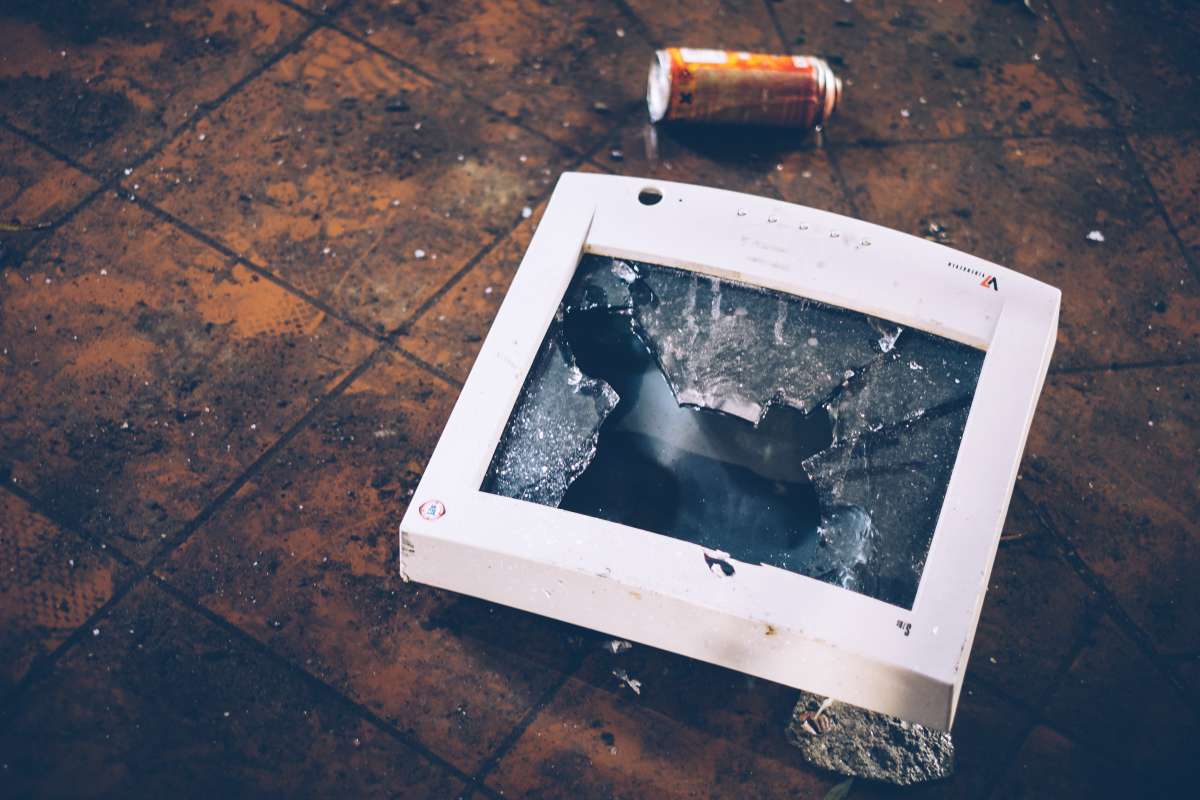
Before you donate or recycle that old appliance, check to see if it still has any of its original parts that could cause injury.
Refrigerants and mercury found in refrigerators and air conditioners can be harmful to the environment if not disposed of properly. Chlorofluorocarbon (CFC) is likely present in refrigerators and freezers made before 1995, while hydrochlorofluorocarbon (HCFC) is likely present in air conditioners and dehumidifiers from the same time period. These chemicals contribute to ozone depletion and climate change. In addition to the circuits and oil, the foam used in refrigerators made before 2005 also contains these chemicals.
To avoid possible exposure to polychlorinated biphenyl (PCB), which has been linked to cancer and other health problems in humans and animals, you should not handle the internal components of any appliances made before 1979.
Incorrect disposal of any appliance, no matter how new or old, can pose a risk to your health, the health of wildlife in the area, and the water supply for your entire community.
Environmental And Health Implications Of Proper Disposal Of Used Appliances
There are many upsides to disposing of appliances in a responsible manner. To begin with, it keeps garbage out of landfills, which can be eyesores and sources of pollution for nearby water supplies and wildlife. The improper disposal of refrigerators in the second half of the twentieth century led to the depletion of the ozone layer and other environmental disasters. PCBs, which can seep out of appliance transformers and capacitors, are a "probable human carcinogen" and a "confirmed carcinogen" in animals and can have an effect on human health.
The responsible disposal of appliances also helps conserve scarce materials. First, this is accomplished through the sale or donation of used appliances, and second, valuable materials are preserved through recycling. Reducing the need for extraction of virgin materials through the use of recycled materials lessens the negative effects of appliance manufacturing on the environment and human health.
Disposing of old appliances in a responsible manner is essential to creating a greener and healthier economy. When the time comes to make a decision about what to do with an old appliance, you'll have more information at your disposal if you're already familiar with the steps involved in appliance recycling.
FAQs About Old Appliances Disposal
Old appliances contain various hazardous materials that can harm the environment if not disposed of properly. Moreover, these materials can also harm human health and well-being.
You can dispose of old appliances responsibly by donating them to charities or recycling centers. Some appliance manufacturers also offer recycling services for their products.
No, it is not recommended to throw away old appliances in the trash because they can release harmful chemicals and contribute to landfill waste. Some states have laws against disposing of certain appliances in landfills.
Appliances such as refrigerators, washing machines, dryers, ovens, and dishwashers can be recycled.
Yes, recycling old appliances is safe as long as the process is carried out by certified professionals who know how to handle hazardous materials.
Conclusion
E-waste can release toxins like dioxins and dust particles into the air, contaminating soil and groundwater with heavy metals and flame retardants, posing a risk to human health and reducing farm productivity. Awareness of e-waste is crucial to protect future generations from its harmful effects.
To reduce the impact of e-waste on the environment, proper disposal is essential. Old appliances can be sold, donated to a thrift store or charity, or picked up by organisations. Contact the city hall for kerbside appliance disposal, designated drop-off locations, or hire a reputable waste management company. Some stores offer removal services when replacing old appliances, and recycling centres can also help reduce landfill waste and extend the useful life of materials.
Major brands, such as Apple and Sony, have recycling programmes that can either fix up or use the parts to create something new. Donations of smaller appliances to organisations like Goodwill qualify as charitable contributions and can be deducted from taxable income.
Before disposing of an old appliance, check for any original parts that could cause injury. Incorrect disposal can pose a risk to health, wildlife, and the water supply. Proper disposal of old appliances is necessary for creating a greener and healthier economy. It helps keep garbage out of landfills, conserves scarce materials, and reduces the negative effects of appliance manufacturing on the environment.
Content Summary
- Appliances are regularly swapped out for newer, more efficient models.
- Improper disposal of appliances can have negative effects on the environment.
- E-waste contains toxins and can contribute to air pollution.
- Workers who handle e-waste are most at risk of air pollution.
- Improper disposal of e-waste can contaminate soil and groundwater.
- Groundwater contaminated by heavy metals from electronic waste can also affect surface water bodies.
- The components of electronic waste are toxic and dangerous to human health.
- Raising awareness of the growing problem of e-waste and its harmful consequences is crucial.
- Recycling, refurbishing, reselling, and reusing electronics can significantly reduce the impact of e-waste.
- It's best to use your best judgement before taking any action when getting rid of appliances.
- Selling old working appliances is a good way to recoup costs.
- Donating appliances to a thrift store or charity is a good way to extend their life.
- Trash and unwanted appliances can be brought to designated drop-off locations.
- Appliance removal services are a convenient option for proper appliance disposal.
- Big-box retailers may provide free removal and disposal services for new appliances.
- Appliances are not biodegradable and can rust and leak harmful substances.
- Throwing away appliances is harmful to the environment.
- Selling appliances on Craigslist or a similar service can be a good option.
- Donating old appliances to a charity can benefit them.
- Most charities will arrange for free pickup of donated appliances.
- Contributing to a charity can result in a tax deduction.
- Local governments may offer a pickup service for appliance recycling.
- Recycling and proper disposal of appliances can reduce landfill waste.
- Improper disposal of appliances can reduce farm productivity.
- Soil and plant species can be threatened by heavy metals and flame retardants.
- Wildlife and other animals may develop health problems after eating contaminated plants.
- Acidification can harm ecosystems, reduce biodiversity, and kill marine and freshwater organisms.
- The negative effects of air pollution can harm ecosystems.
- Proper training in recycling and waste management is crucial.
